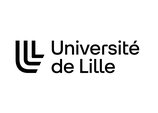Solid State NMR
- Duration: 5 weeks
- Effort: 20 hours
- Pace: ~4 hours/week
- Languages: English
What you will learn
At the end of this course, you will be able to:
Understand the major solid-state NMR experiments and how they can be applied to investigate the atomic-level structure and dynamics of solids.
Description
Solid-state NMR has proved to be a powerful tool for the characterization of materials, including battery materials, glasses and catalysts.
“Solid-state NMR” is the third course of a comprehensive three-part online learning program on NMR. It aims at providing the participants with knowledge about solid-state NMR. In particular, it presents the specific techniques used to acquire and analyze NMR spectra of solids and their applications to probe the structure of different materials.
This course is intended for undergraduate and graduate students as well as educators and professionals who need to gain proficiency as routine users of solid-state NMR.
Format
During the five weeks of the MOOC, you will learn the major solid-state NMR experiments and their applications, through video lectures as well as discussions with other participants and professors through the discussion forum. Through practical courses filmed at the spectrometer, you will also be trained to conduct NMR experiments on spin-1/2 and quadrupolar nuclei in solids. Weekly quizzes will let you test your comprehension of each chapter.
This MOOC is taught in English. However, subtitles in simplified Chinese and Japanese are also provided.
Prerequisites
Participants should have some basic knowledge of NMR spectroscopy and its application for small organic molecules in solution.
Assessment and certification
The acquired knowledge will be tested through practice and graded quizzes, as well as a final exam.
Your final grade is a weighted average of your grades obtained for the graded quizzes and the final exam.
You will earn a certificate for this MOOC provided your final grade is above 65%.
Course plan
- Week 1: Specific methods for the NMR of solids
- Week 2: Advanced methods, high-fields and DNP
- Week 3: Homo-nuclear and hetero-nuclear connectivities and proximities
- Week 4: NMR of materials and practical course for spin-1/2 nuclei
- Week 5: Practical course for quadrupolar nuclei
Course team
Olivier Lafon
Categories
Frédérique Pourpoint
Categories
Julien Trebosc
Categories
Organizations
Acknowledgements
Dr. Ming Shen, associate professor at East China Normal University, P. R. China, and Dr. Akiko Sasaki, researcher at Bruker BioSpin, Japan are acknowledged for the translation of the subtitles into simplified Chinese and Japanese, respectively.
License
License for the course content

Attribution-NonCommercial-NoDerivatives
You are free to:
- Share — copy and redistribute the material in any medium or format
Under the following terms:
- Attribution — You must give appropriate credit, provide a link to the license, and indicate if changes were made. You may do so in any reasonable manner, but not in any way that suggests the licensor endorses you or your use.
- NonCommercial — You may not use the material for commercial purposes.
- NoDerivatives — If you remix, transform, or build upon the material, you may not distribute the modified material.
License for the content created by course participants

All rights reserved
"All rights reserved" is a copyright formality indicating that the copyright holder reserves, or holds for its own use, all the rights provided by copyright law.




